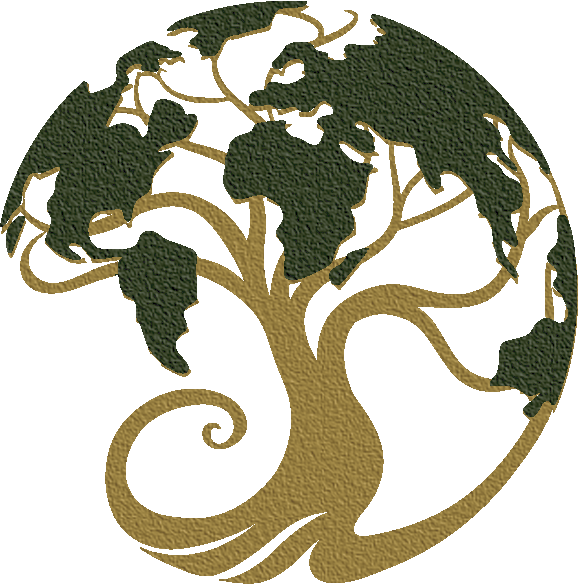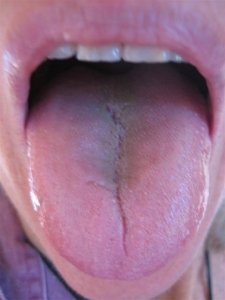The Wisdom of Ayurvedic Tongue Diagnosis
Shantree Kacera, R.H., D.N., Ph.D.
More than two decades ago, I authored the groundbreaking book on Ayurvedic Tongue Diagnosis, the first in English. In this book, I shared my expertise on this traditional diagnostic technique that can reveal a wealth of information about one's physical, mental, and emotional health.
Today, I am excited to announce that I will conduct a weekend workshop on Vital Energy that will guide participants in increasing their vital energy and a series of four-week online sessions that will delve deeper into this fascinating subject. One series will be specific on ‘Ayurvedic Tongue Diagnosis’ and another on ‘The Gut Biome.’ Whether you are a seasoned practitioner, a curious student, or simply interested in improving your well-being, these offerings will provide a wealth of knowledge and practical tools to support your journey toward optimal health. All of these will include before and after photos of tracking your progress.
Ayurvedic tongue diagnosis is a traditional method used in Ayurvedic medicine to assess an individual's health and diagnose potential imbalances or diseases.
Have you ever wondered why doctors ask you to open your mouth and say "ahh"? The tongue is actually an essential diagnostic tool in many medical practices. In Ayurveda, an ancient Indian system of medicine, the tongue plays a crucial role in diagnosis. Examining the tongue allows a practitioner to gather valuable insights into a person's constitution and overall health.
Here are some benefits associated with Ayurvedic tongue diagnosis:
Non-invasive Method: Ayurvedic tongue diagnosis is non-invasive and does not require complex medical equipment. It involves observing the colour, coating, texture, and markings on the tongue, which can provide valuable insights into an individual's overall health.
Early Detection of Imbalances: Practitioners of Ayurveda believe that changes in the tongue's appearance can indicate underlying imbalances or diseases in the body even before symptoms manifest. Individuals can take preventive measures to maintain their health and well-being by identifying these changes early.
Holistic Assessment: Ayurvedic tongue diagnosis considers the interconnectedness of body, mind, and spirit. It considers physical symptoms and emotional and mental aspects of health. This holistic approach allows practitioners to address imbalances at their root cause rather than treating symptoms.
Personalized Treatment: Based on the findings of tongue diagnosis. Ayurvedic practitioners can recommend customized treatment plans, including dietary changes, lifestyle modifications, herbal remedies, and other holistic therapies tailored to the individual's unique constitution and imbalances.
Monitoring Progress: Ayurvedic tongue diagnosis can be used to monitor treatment progress over time. As the individual's health improves, changes in the tongue's appearance may be observed, providing valuable feedback on the effectiveness of the treatment plan.
Integration with Other Diagnostic Methods: Ayurvedic tongue diagnosis can complement other diagnostic methods used in modern medicine, such as laboratory tests and imaging studies. By integrating multiple approaches to diagnosis, healthcare practitioners can gain a more comprehensive understanding of the individual's health status.
Promotion of Self-awareness: Ayurvedic tongue diagnosis encourages individuals to become more aware of their bodies and pay attention to subtle changes in their health. By learning to observe their tongues and recognize patterns of imbalance, individuals can take an active role in maintaining their health and well-being.
Overall, Ayurvedic tongue diagnosis offers a valuable tool for assessing health and identifying imbalances in the body. When used in conjunction with other diagnostic methods and personalized treatment approaches.
The tongue, a vital organ in the human body, can reveal valuable information about one's constitution. Vata, Pitta, and Kapha are the three primary doshas in Ayurveda, each with a distinct tongue shape. Understanding the shape of your tongue can help you gain insight into your dosha and tailor your lifestyle and dietary choices accordingly. Observing the tongue's colour can provide valuable insights into one's health condition.
Vata tongues are typically narrow and off-center, resembling a leaf or a serpent's tongue. A tongue that appears purple may indicate an imbalance of the vata dosha, which can cause a range of symptoms such as anxiety, insomnia, and constipation.
Pitta tongues are medium-width and pointed, reflecting a sharp and precise nature. On the other hand, a bright red tongue may indicate excess heat or a pitta dosha imbalance, leading to symptoms such as inflammation, fever, and skin rashes. Similarly, another person could have a bright red tongue and not experience pitta imbalances, such as heartburn and acidity, commonly associated with a bright red tongue.
Kapha tongues are broad and thick, often with a coating, indicating a more grounded and stable constitution. A tongue that appears very pale may suggest a weak digestive fire and vulnerability to kapha dosha imbalances, such as sluggish digestion and phlegm buildup. Have you ever looked at your tongue in the mirror and noticed a thick, white coating on it? If so, it's worth exploring the significance of this mysterious white substance. This thick coating on your tongue could indicate various underlying conditions that affect your oral health.
You can take a dosha quiz to see if the results match your personal tongue reading. However, it's important to remember that people are complex and multifaceted, and no single sign is necessarily absolute. For instance, it's possible for someone to have a pale tongue and still have excellent digestion.
The tongue is a crucial indicator of our overall health.
What the Tongue Can Tell You
By examining the landscape of the tongue, we can obtain a clearer picture of our physical condition. Paying attention to the tongue can guide us in achieving balance. Here is a list of identifiable indicators that can assist in determining the state of our body.
Foaming on the tongue can signify candida, a yeast-like overgrowth in the body. This condition is caused and fueled by consuming too much sugar in the diet. If you notice foaming on your tongue, avoid sugar; significantly refined sugar is recommended.
A tongue that appears puffy or has waves along the perimeter may indicate stagnant lymph. Consuming food or alcohol late at night, particularly wine can contribute to a puffy tongue. Individuals with a puffy tongue should avoid eating and drinking alcohol after sunset.
Skin dry brushing may be helpful for those who want to improve their lymphatic system. To do this, buy a loofah sponge or gloves and brush your skin from the base of your limbs toward your heart once a day before you shower. It's like an invigorating self-massage, mainly if you use stimulating and warming herbal oils.
As we mentioned earlier in this article, if you notice a thick coating on your tongue, it may indicate the presence of toxins in your body. The location of the coating can also provide some insight into where the toxicity is concentrated. For instance, a layer at the back of your tongue near your tonsils may suggest that the toxicity is mainly in your colon.
On the other hand, a coating in the middle of your tongue may indicate that the toxins are spread throughout your gastrointestinal area.
Using a tongue cleaner regularly can effectively remove harmful toxins from your mouth and promote better digestion.
Additionally, herbal blends can be crucial in averting and expelling toxicity, ensuring optimal health and well-being.
Understanding the basics of tongue diagnostics is essential, as it can help us keep track of our health daily. I make it a habit to check my tongue every morning and periodically throughout the day. By observing and comprehending the changes in our tongue, we can identify areas where we need to adjust our diet - including our food and supplements. This tool can be beneficial for gathering data and improving our overall health.
Shantree Kacera, R.H., D.N., Ph.D. international author and practioner for 45-years with over 40 thousand clients. Ayurvedic Tongue Diagnosis books have been published in the US and India.



